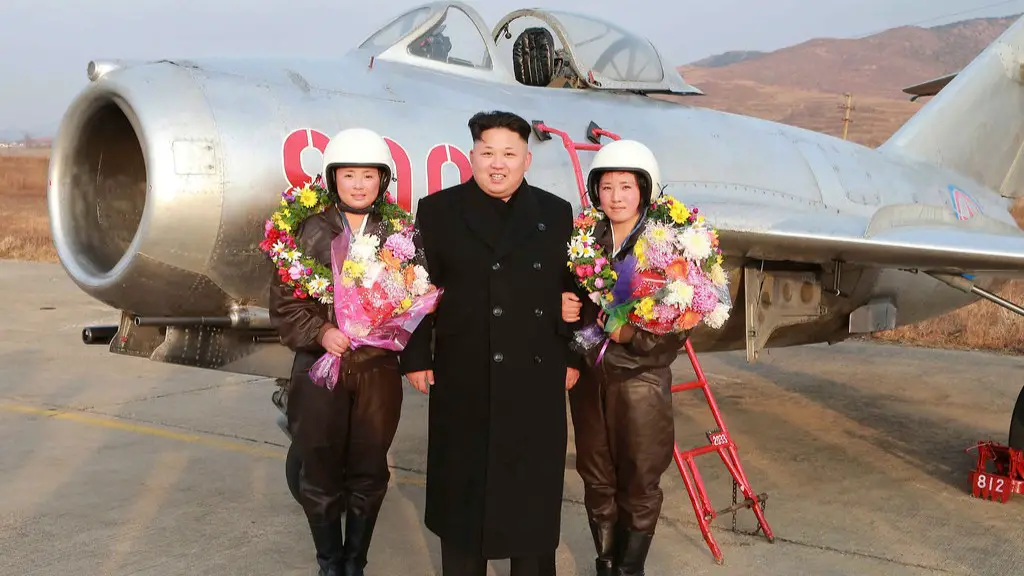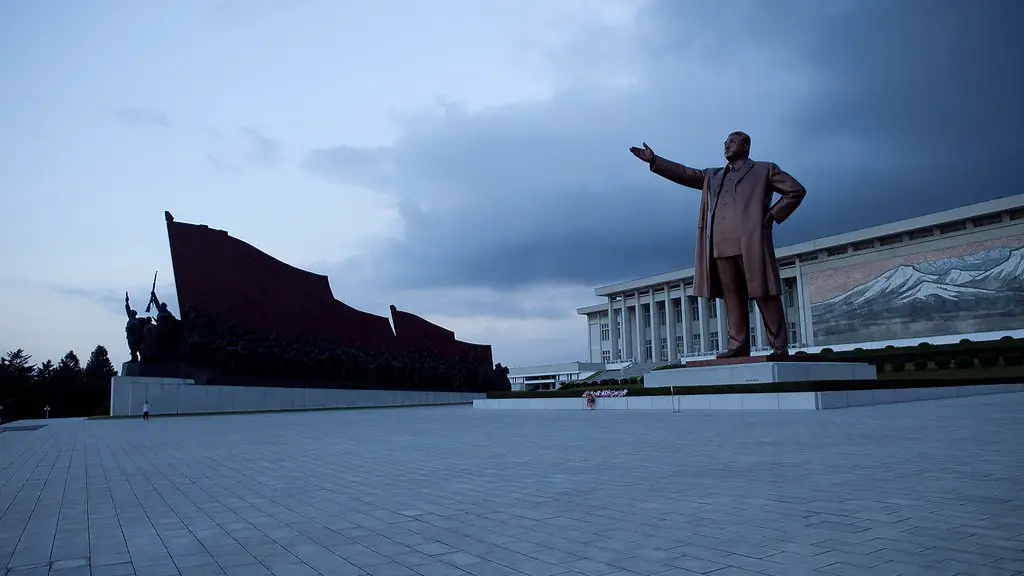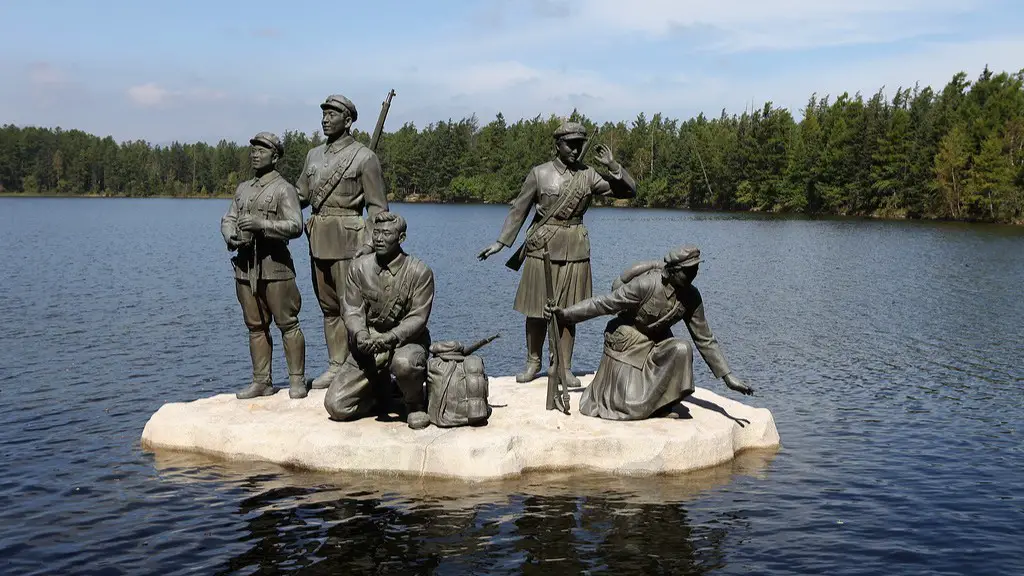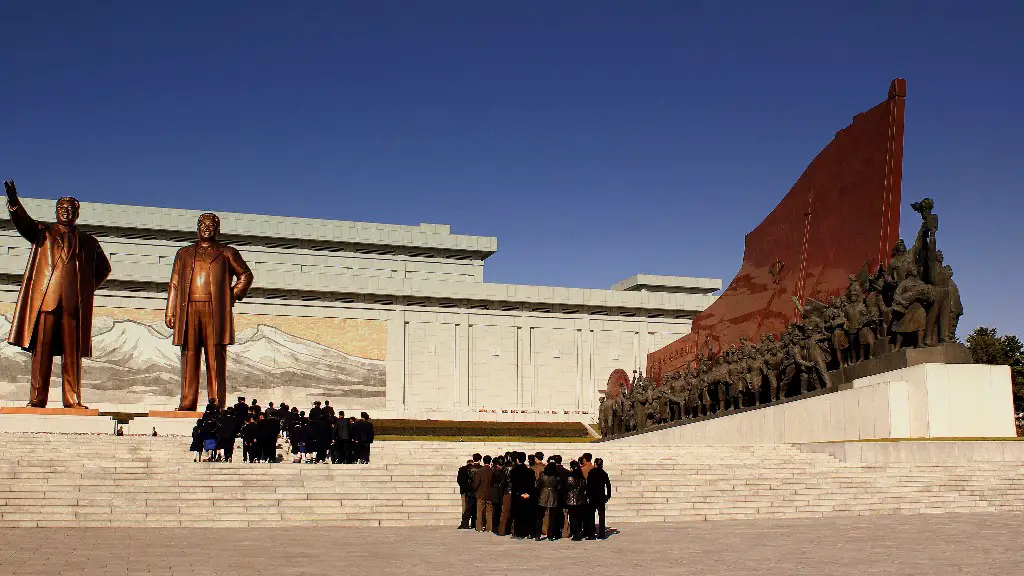In recent months, the United States and North Korea have been locked in a brewing conflict. The two countries have been hurling threats and insults at each other, and there is a real possibility of a military conflict erupting. What is going on between the United States and North Korea?
The US and North Korea are engaged in a heated standoff, with both sides regularly exchanging threats and insults. The US has been placing increased economic and military pressure on North Korea in an effort to get them to abandon their nuclear weapons program, but so far these efforts have been unsuccessful.
What is North Korea’s problem with the United States?
The armistice that ended the Korean War was signed in 1953, but tensions between North and South Korea have remained high in the intervening years. Areas of contention have revolved around North Korea’s nuclear weapons program and missile tests, North Korea’s human rights record, US sanctions against North Korea, and military exercises held by the US and South Korea. These issues have periodically led to escalations of tensions and military confrontations, such as the Korean DMZ Conflict in 1976, the First Korean Peninsula Crisis in 1994, and the Second Korean Peninsula Crisis in 2010.
The United States and South Korea have been allies since the 1953 Mutual Defense Treaty. US military personnel have maintained a continuous presence on the Korean peninsula since the agreement was signed. The treaty has been an important part of the US-South Korea alliance, and has helped to keep the peace on the peninsula.
Why did the US go to war with North Korea
The domino effect is a theory that posits that if one country falls to communism, then neighboring countries will also fall like dominoes. This was a major concern for America during the Cold War, as they did not want the spread of communism to continue. Truman was particularly worried about the domino effect in East Asia, as he believed that if Korea fell to communism, then Japan would be the next domino to fall. This would have been disastrous for American trade, as Japan was a major trading partner. Luckily, the domino effect did not happen and communism was contained.
At this time, the Department of State strongly advises against travel to North Korea due to the continuing serious risk of arrest and long-term detention of U.S. nationals. Exercise increased caution if you choose to travel to North Korea.
Are Americans allowed in North Korea?
Since the Korean War, the United States has maintained a strict policy towards North Korea, which includes a travel ban. Recently, the US government has eased some of these restrictions, but Americans are still not allowed to go to North Korea. The reason for this is because the US government believes that North Korea is a state that sponsors terrorism and poses a threat to the US and its allies. North Korea has also been known to detain Americans who have traveled there, so the US government advises against it.
The war between the US and North Korea technically ended in an armistice, rather than a peace treaty. This means that US-led UN forces are still technically at war with North Korea. Despite this, the two sides have been able to maintain a relatively stable peace over the past few decades.
Which Korea is a US ally?
South Korea is a key ally of the United States in the Indo-Pacific region, and our two militaries have a long history of working together to promote peace and security. Austin’s visit underscores the strong commitment of the United States to our alliance and to the defense of South Korea.
As the United States continues to pivot its attention toward the Asia-Pacific region, its 28,500 troops stationed in South Korea play a critical role in maintaining a presence in the region. These soldiers, sailors, airmen, and marines are a key part of the US government’s strategy to maintain a balance of power in the Asia-Pacific, and their presence is a clear manifestation of that commitment. With their training and experience, these troops are well-positioned to respond to any potential threats in the region and help to ensure the safety and security of US interests in the Asia-Pacific.
Why did the US get involved in Korea
The United States committed air, ground, and naval forces to the combined United Nations forces assisting the Republic of Korea in its defense. President Harry S Truman was concerned that the Soviet Union and Communist China might have encouraged the invasion.
The United States initially didn’t want to get involved in any kind of invasion. They didn’t want to get tangled up with North Korea, much less China or the Soviet Union. However, key events on the world stage caused the United States to change course. On August 29, 1949, the Soviets detonated their first atomic bomb. This development created a new urgency for the United States to act.
Who was to blame for the Korean War?
It is generally agreed by historians that the outbreak of the Korean War can be attributed to communist forces of North Korea, backed by the USSR. In the summer of 1950, these forces invaded the capitalist South in an attempt to spread communism. This attempt was ultimately unsuccessful, but the war did result in significant casualties and damage.
The North Korean government strictly controls its citizens’ travel both within the country and abroad. North Koreans are not able to freely move around the country, and emigration and immigration are tightly controlled. This limits the North Korean people’s ability to see the world and experience different cultures.
Do North Koreans have phones
Cellphone usage is now ubiquitous in North Korea, not only for communication with friends and family, but also for North Korea’s private economy—a vital tool for communicating with suppliers, buyers and distributors. Data from recent interviews with North Korean escapees conducted by the authors indicates that cellphone usage is now widespread in North Korea.
Starting September 1, 2021, US citizens traveling to Korea must have a valid visa or an approved Korea Electronic Travel Authorization (K-ETA) to enter Korea.
All US citizens traveling to Korea must have a valid passport. If you do not have a valid passport, you will not be able to obtain a visa or K-ETA.
If you are traveling to Korea for business, you will need to obtain a business visa. If you are traveling to Korea for tourism, you can either obtain a tourist visa or apply for a K-ETA.
To apply for a K-ETA, you will need to have a valid passport, a credit or debit card, and an email address. The application process is completed online, and you will receive your K-ETA electronically.
Once you have your K-ETA, you can travel to Korea for 90 days for business or tourism. If you wish to stay longer, you will need to apply for a tourist visa.
Can you watch TV in North Korea?
TVs in North Korea are designed to only work with the PAL and DVB-T2 systems in order to prevent them from picking up broadcasts from South Korea or China. This helps to keep the population isolated from outside influences.
Soju is a distilled spirit that is very popular in East Asia, especially South Korea and China. It is made from rice, wheat, or potatoes and is typically around 20% alcohol. North Korea does not have any limit on consumption and it is considered a national pastime. The main difference between North and South Korea is that South Korea has a much higher per capita consumption rate.
Conclusion
The United States and North Korea have been in a state of tension for many years. In recent months, the two countries have been exchanging a lot of heated rhetoric, which has led many to believe that a war could break out between them.
There is a lot of tension between the US and North Korea. North Korea is a nuclear power, and the US is trying to stop them from having nuclear weapons. The US is also trying to stop North Korea from selling nuclear weapons to other countries.





